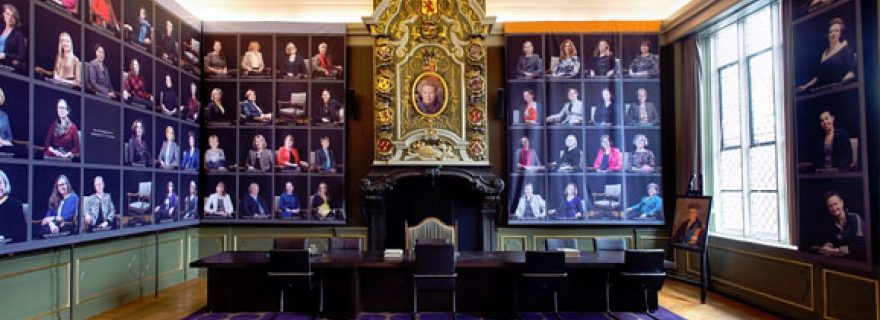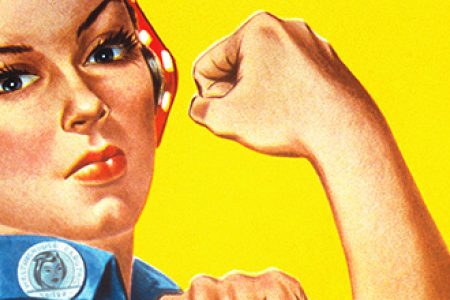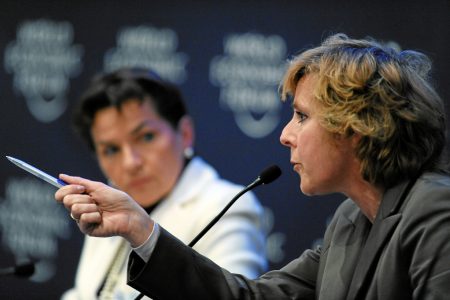International women’s day? Really?
“Why do we have an international women’s day? We don’t have a men’s day!” or “Every day is women’s day” are frequently heard questions and comments about March 8th – International Women’s Day. Are these concerns valid?
Equal opportunities?
Yes, we do still need an international women’s day. Women are still underrepresented in top positions, such as leadership positions; this is no different in academia. The numbers speak for themselves: In the Netherlands, only 17% of full professors are women (Monitor Vrouwelijke Hoogleraren 2015); women with a PhD are less well paid and less likely to hold a leadership position than men (CBS, 2016), and receive less credit for their research contributions (e.g., Sugimoto et al., 2013; 2016); and awarding rates for personal research grants are lower for women than for men (Van der Lee & Ellemers, 2015; Vinkenburg et al., 2014).
While most people nowadays support diversity initiatives and equal opportunities (who doesn’t want the best person for the job?), implicit biases can impair such attempts. For example, when thinking of the ideal leader, we still automatically more often think of a man than a woman, and characteristics that we consider ‘excellent’ are stereotypically masculine traits (e.g., Gaucher et al., 2011; Leslie et al., 2015). This is also prevalent in the daily working environment, where women are constantly confronted with the stereotypical image of the ‘successful scientist’: a white male. Take Leiden University’s Senaatskamer, for instance, where PhD candidates defend their dissertation, the occasion which symbolically paves the way for their career as independent researchers. In this illustrious room, they are surrounded by the portraits of 117 men and 1 woman (Sophia Antoniades, the first woman appointed a full professor at Leiden University, 1929). What message does this convey to women who stand at the beginning of their careers?
Different realities
Despite the fact that women have similar ambitions and competencies to men (e.g., Hyde, 2014), they continue to face different realities. Professional women today are still asked “where Dr. xxx is” (because surely Dr. xxx is a man); they are asked to “go and get a cup of coffee” for their male co-workers, or to “take notes” during a board meeting. They are also told they “looked nice up there” rather than that they “did well up there” after presenting their conference paper, and they are frequently confronted with the assumption that they must be planning to start a family soon (because that’s what women do, right?). See also Athena's Angels.
Such comments may be meant as a joke, or may not be intended to be negative or offensive. Yet the effect on women can be harmful, as comments like this undermine women’s competence and reinforce gender stereotypes. Consequently, perceived discrimination induces stress, impairs performance, and can result in women ‘opting out’ of the workplace (e.g., Ellemers & Barreto, 2015; Schmitt et al., 2014; Stephens & Levine, 2011).
International inclusion day
Thus, attempts to increase awareness about the position of women—or any other underrepresented group, for that matter—are instrumental in creating a more inclusive and diverse environment, as well as equal opportunities for ALL. International women’s day is an umbrella that brings together many initiatives to draw attention to the position of women. For example, Athena’s Angels—four female full professors defending the interests of women in academia—are currently displaying 99 portraits of former and current female professors in the Senaatskamer at Leiden University. The project, entitled ‘Room for women!’, highlights the importance of inclusive imagery in shaping perceptions and attaining a more equal gender balance in academia. International women’s day is a day on which the spotlight is focused on influential women and female role models, acknowledging their contributions that might otherwise have remained unnoticed.
And for the record, November 19 is international men’s day!





